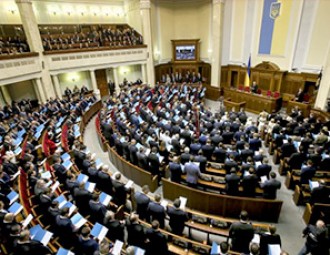Belarus’ parliamentary elections: Opposition is divided while state introduces no harsh repressions

Tension between supporters of protests and those for partaking in the elections is growing. Boycott supporters are stepping up criticism as the state bans opposition leaders from the election race.
The authorities have registered 304 initiative groups of citizens to collect signatures to nominate candidates for deputies to the House of Representatives of the National Assembly of the sixth convocation.
Currently, there are circa three contenders per seat for 110 seats in the lower house of the parliament and their number is likely to increase by late July. The deadline for nominations expired on July 7th, but district election commissions still have over a hundred of applications to consider from 479 applications to register initiative groups. Compared with the 2012 parliamentary elections, when 440 applications to register initiative groups were filed, there is somewhat more activity during the ongoing parliamentary campaign.
Some opposition activists use two ways to nominate their candidates - by collecting more than 1000 signatures per candidate and political party nomination. Since many organisations have departed from the idea of the boycott, they are more active in the ongoing parliamentary campaign. For instance, political parties (mainly oppositional) have already registered 103 initiative groups, which is triple of those registered in the 2008 parliamentary elections (66 groups).
That said, the Belarusian Popular Front and Fair World leftist party previously declared they would nominate 80 and 60 candidates respectively. In addition, pro-governmental Liberal Democratic Party of Belarus (LDPB) said it would nominate candidates to each of the 110 constituencies.
Pro-governmental candidates also use both ways to nominate their candidates, but more often - collect signatures. In addition, they nominate candidates from labour collectives. Like the opposition, nominees from the authorities collect signatures to have an additional propaganda opportunity and gain support among the population. Moreover, they have the opportunity to work with labour collectives, which is out of the question for the opposition.
Simultaneously, tension has been growing in the Belarusian opposition between supporters of protest activities and those supporting participation in the election campaign. Former political prisoner Nikolai Statkevich said he might withdraw all the candidates of the Belarusian National Congress (26 initiative groups) from the race if his initiative group was not registered.
Some democratic organisations, such as REP trade union, have already announced their refusal to participate in the elections. Most likely, participants in the Congress, led by Statkevich will be forced to leave the parliamentary race and will de facto boycott the elections. In addition, as these supporters of protest activity are refusing to participate in the elections, they are likely to toughen the rhetoric against their former partners in the opposition. Other political parties, however, are determined to participate in the ongoing parliamentary campaign in full.
In addition, the opposition is planning to carry out election observation, which will require many activists, who will be unable to participate in the campaigning. For instance, the "Right of Choice" campaign includes virtually all major party structures, which nominate their candidates.
Most likely, after the Congresses in mid-July, the number of nominees from political parties to the parliamentary elections may double. The authorities, however, may take a harsh stance on registering the most critical opposition candidates.
-
03.01
-
07.10
-
22.09
-
17.08
-
12.08
-
30.09








































